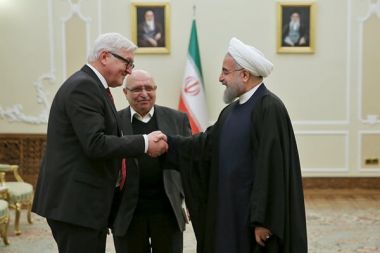Iran now able to access $100 billion of its frozen assets under nuclear agreement

Iran has announced that it has already gained access to the more than $100 billion worth of its frozen overseas assets as part of the nuclear agreement signed with world powers last summer.
"These assets have fully been released and we can use them," Iran government spokesperson Mohammad Bagher Nobakht said in comments posted on the website of state-run Press TV.
"Much of the money belongs to Iran's central bank and National Development Fund,'' he said, adding that Iran will not bring all the money back because it can be spent on purchasing goods.
According to Nobakht, much of the money that came from international sales of Iranian oil had been piling up in banks in China, India, Japan, South Korea and Turkey. Those countries have been holding the funds in escrow since tighter sanctions were implemented in 2012.
Central bank official Nasser Hakimi, meanwhile, said nine Iranian banks are now reconnected to SWIFT, a Belgian-based cooperative that handles wire transfers between financial institutions, according to Iran's semi-official ISNA news agency.
Currently, reports say no foreign banks operate in Iran, and ATMs there are not yet linked to the global system.
With the lifting of sanctions and access to funds now, Iran is expected to have an economic breakthrough and sell crude oil more freely. Iran has the fourth largest oil reserves in the world, reports say.
Mohsen Jalalpour, the head of Iran's Chamber of Commerce, said on state TV Monday that Iranian businessmen are already able to open letters of credit for transactions in other countries.
Iran's landmark deal with six world powers signed in July 2015 limit its sensitive nuclear activities for more than a decade in return for the lifting of crippling sanctions. But many people—including Israeli officials, as well as those from Arab states like Saudi Arabia and the United Arab Emirates—believe Iran will use these funds to pay its terror proxies such as Hezbollah or the Houthi rebels in Yemen, which could in turn destabilise the Middle East.
Furthermore, officials and analysts fear that Iran could also use the money to develop its ballistic missile programme.











